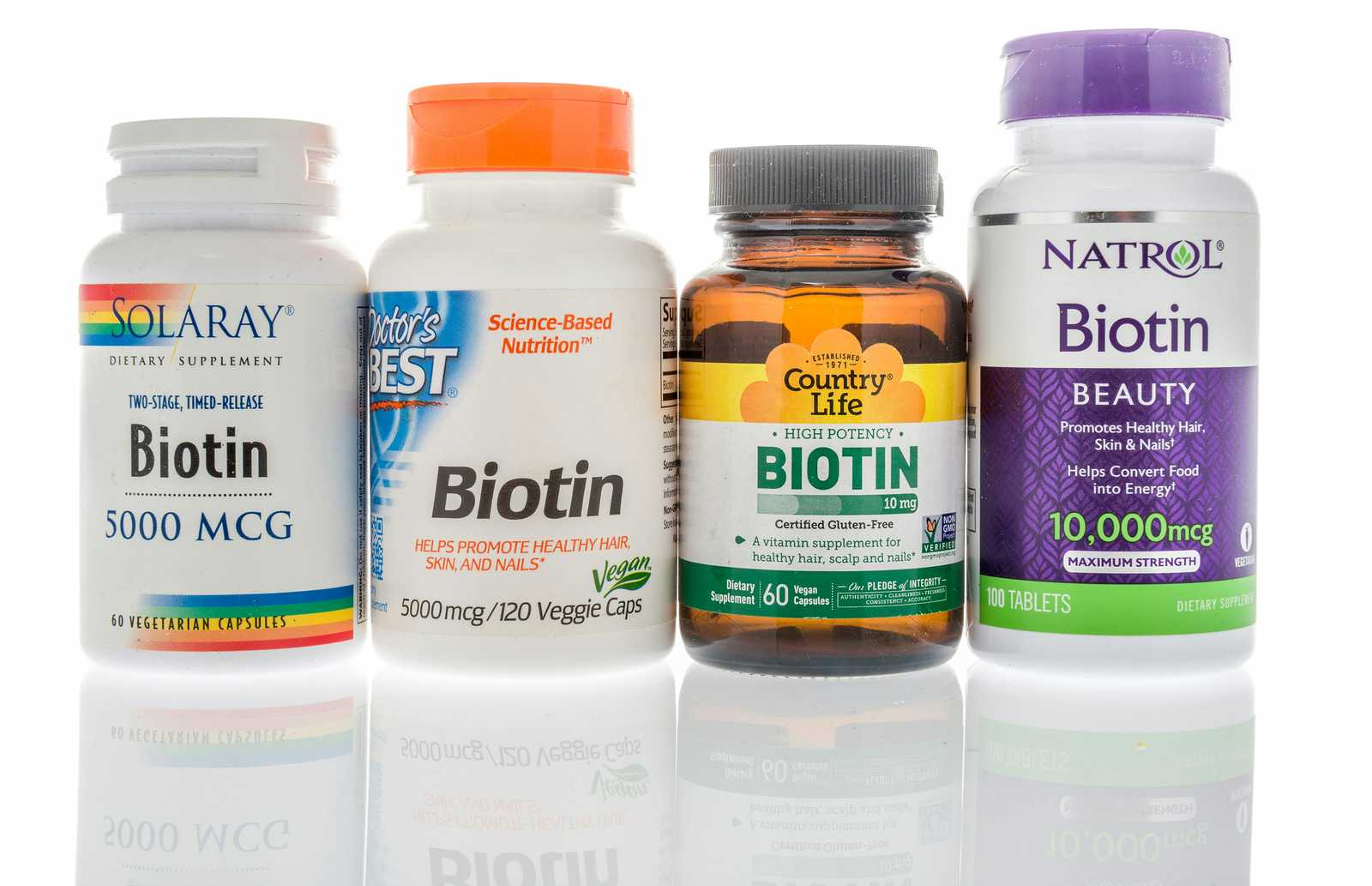
It’s alarming to get a laboratory test result that shows a serious problem. Learning later that the test might have given a false reading is also frustrating. One reader discovered that you should beware of biotin if you are having thyroid tests run.
Why Should You Beware of Biotin?
Q. My husband recently had blood tests that showed he was hyperthyroid. His doctor ordered further tests, including a thyroid scan and an iodine uptake test.
Then an endocrinologist mentioned that the thyroid blood tests can be affected by biotin. We checked our multi-vitamin, and there were 500 mcg of biotin! Normal RDA is 30 mcg. Others should be warned about this.
Biotin Can Interfere With Tests for TSH:
A. The usual test for thyroid-stimulating hormone (TSH) is subject to interference when biotin levels are high (Nutrition, Jan. 2019). The result is that TSH appears lower than it actually is, leading to a false diagnosis of hyperthyroidism. When TSH is low, that is an indication that the pituitary gland in the brain is trying to shut down thyroid hormone production. Normally, that would be due to excess thyroid hormone in circulation. But biotin from B vitamins or other products can grab TSH and lower it artificially.
Doctors and patients should both beware of biotin giving a false result on thyroid tests. Patients might be wise not to take biotin-containing products, such as vitamins or hair-restoration products, when they are being tested for thyroid problems.
Beware of Biotin-Containing Shampoo for Thyroid-Related Hair Loss:
Q. I am on Synthroid for hypothyroidism. About a year ago, my doctor lowered the dosage. After six months on the lower dose, my hair started falling out like crazy. My hairdresser even found a few areas with no hair! To counteract this, I started using a shampoo containing biotin. I am convinced the biotin has helped me to regrow my hair.
A. Levothyroxine (Synthroid) is the primary treatment for hypothyroidism, a condition in which the thyroid gland produces too little of this essential hormone. When thyroid levels are too low, people frequently experience hair loss (Medicine, Jan. 5, 2024). Sudden hair loss of the type you describe is known as telogen effluvium.
Unfortunately, the remedy you have chosen may pose a problem. Biotin from shampoo could be absorbed through the skin (Journal of Nutrition Science and Vitaminology, June 1999). Biotin can interfere with thyroid tests, lowering TSH and raising T4 and T3 levels falsely (Annals of Clinical and Laboratory Science, Jan. 2023). As a result, your doctor might conclude your thyroid dose is working better than it actually is. And that could lead to more hair loss. If you stop using biotin several days before your next blood test, you should get accurate test results.
Will Biotin Disrupt Sleep?
Another reader offered a completely different reason to beware of biotin.
Q. Have you heard that people have nightmares while taking biotin? I began taking this supplement and started having the most vivid and terrible nightmares.
I would yell, kick and get out of bed while still in a dream state. A recurring theme was getting chased by wild animals or being attacked by a stranger. Normally I have vague memories of dreams, but I always recalled these vividly because they were so real.
I looked up the behavior and found that it was best described as REM Sleep Disorder. The nightmares stopped when I quit taking biotin.
A. This certainly sounds like an unpleasant experience. The behavior you experienced might also be classified as periodic limb movement disorder, a related sleep disorder.
There are some similar reports on the internet. However, we could find no links between biotin and sleep problems in the medical literature.
Learn More:
Biotin is not the only thing that can interfere with blood tests for thyroid function. You can find out about others in our eGuide to Thyroid Hormones. In it, we offer more information on testing for hypothyroidism, as well as drugs and supplements that can affect test results and natural hormones.
Citations
- Charles S et al, "Erroneous thyroid diagnosis due to over-the-counter biotin." Nutrition, Jan. 2019. DOI: 10.1016/j.nut.2018.05.005
- Bin Dayel S et al, "Is thyroid dysfunction a common cause of telogen effluvium?: A retrospective study." Medicine, Jan. 5, 2024. DOI: 10.1097/MD.0000000000036803
- Makino Y et al, "Percutaneous absorption of biotin in healthy subjects and in atopic dermatitis patients." Journal of Nutrition Science and Vitaminology, June 1999. DOI: 10.3177/jnsv.45.347
- McBride M & Dasgupta A, "Significant interference of biotin in thyroid function tests using Beckman Analyzer: How to identify such interferences?" Annals of Clinical and Laboratory Science, Jan. 2023.

